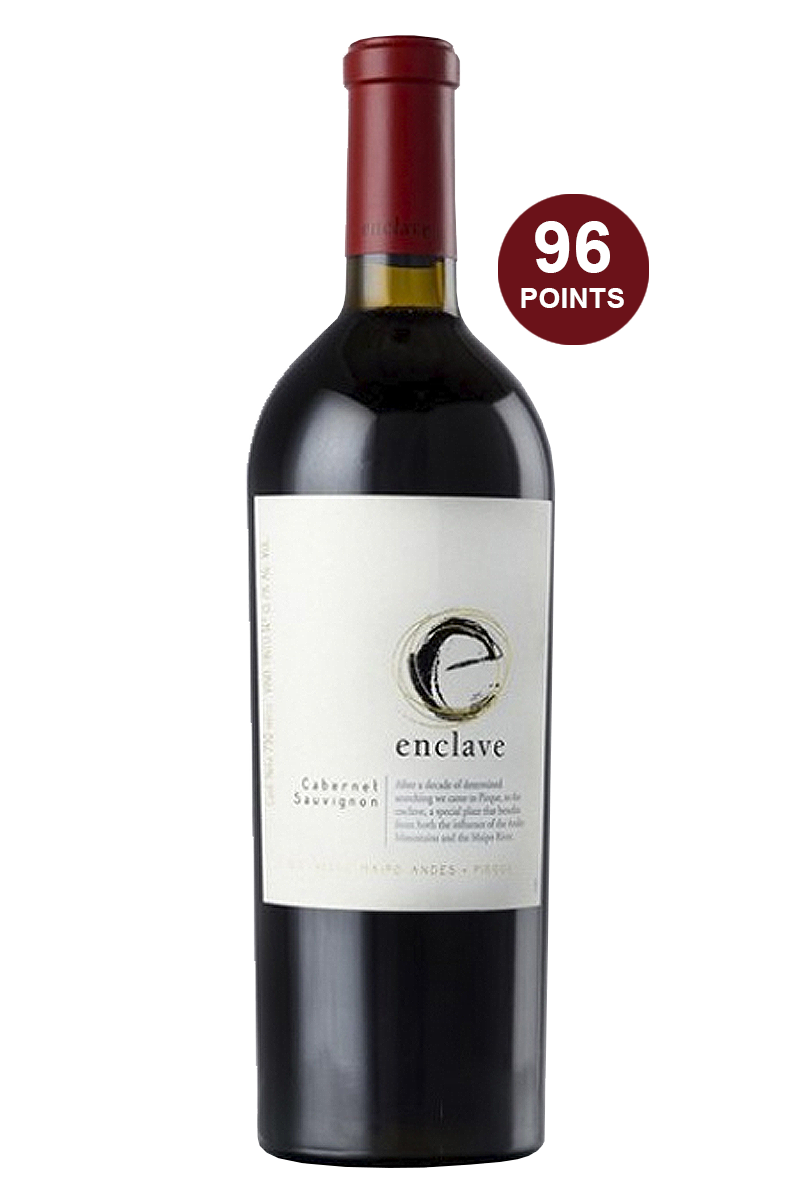The grapes underwent a classic fermentation. First they were macerated for 3 to 4 days a 8°C. Then the temperature was allowed to increase gradually and, when it reached 20°C, it began to ferment. The fermentation took 6 to 8 days at temperatures of between 22°C and 28°C. This was followed by a post-fermentative maceration with the skins for 3 to 5 weeks.
The wine was tasted daily to evaluate the behaviour of the flavours and tannins and decide how long to leave the wine in contact with the skins before racking. It was then put into oak barrels for the malolactic fermentation. This process is very important as the barrels enable a micro oxygenation to take place, ensuring that the malolactic fermentation occurs slowly and the wine integrates the wood well
Tasting Notes:
Enclave is deep, dark red in colour. The nose reveals red fruit such as plums and cherries, a touch of cassis, white pepper, damp earth and a hint of black fruit. It has very interesting aromatic complexity.
In the mouth, this is a concentrated and well-structured wine with firm yet silky smooth tannins. Persistent in the finish. This blend has layers of flavours. The firm tannins of the Cabernet Sauvignon and Petit Verdot intermingle with the softness and complexity of the Carménère and the elegance of the Cabernet Franc.
Its blend means that Enclave can be cellared for between 10 and 15 years.
Aged in 225-litre extra-fine grain French barrels for 18 months. 50% of them were new and the rest were a year old. It was then bottle-aged for 12 months.
Varieties: Cabernet Sauvignon 89% - Petit Verdot 4% - Carménère 4% - Cabernet Franc 3%


